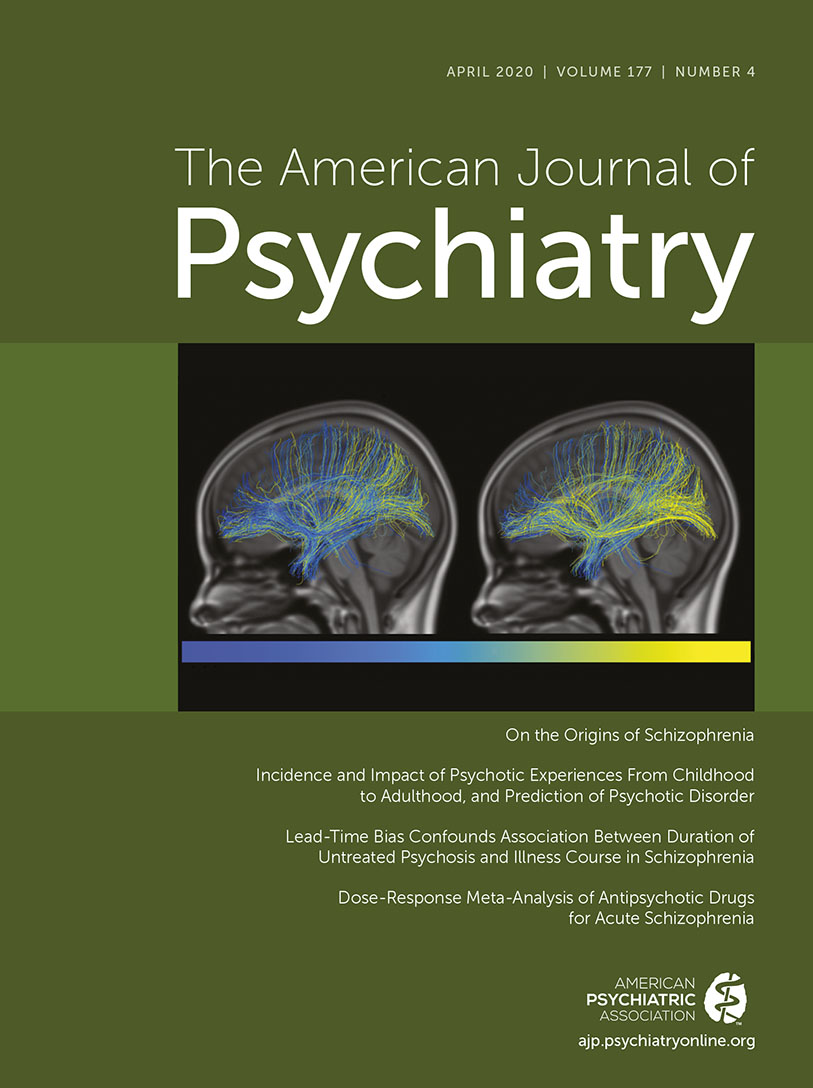The Ambiguity of Maltreatment
to the editor: The January 2020 issue of the Journal contained two editorials (1, 2) and three empirical reports (3–5) on the consequences of childhood maltreatment. This letter to the editor is a response to these narratives.
The prefix “mal” reveals the problem with the popular term “maltreatment,” which pools into one concept distinctive kinds of early experiences that have different origins and outcomes. No specialist in infectious diseases would claim that the flu, dysentery, cholera, and tuberculosis were instances of bad microbes. Dramatic advances in biology, many discovered in experiments with animals, which do not impose symbolic evaluations on their experience, have biased psychiatrists and psychologists to assume that an experience qua experience is the causative condition, rather than the child’s interpretation of its meaning. This premise is reminiscent of John Locke’s belief that all knowledge is derived from sensory experience, a claim that has been proven incorrect. Infants exposed to abuse, neglect, or social deprivation experience states that in English are called pain or boredom. The interpretation of an experience as maltreatment does not emerge until the third year when children are able to infer whether their experience is a product of another’s anger, indifference, or benevolent concern with their future.
The children growing up in 17th-century Puritan families were punished in ways that most contemporary investigators would classify as maltreatment. But these children viewed the harsh practices as reflecting the parent’s desire to build an adaptive character. A number of 22-year-olds who were members of the Fels Institute longitudinal sample had unusually harsh parents when they were children growing up in Ohio during the 1930s. But when I asked these adults to describe their early childhood, almost all told me that although they remember having harsh, punitive parents, they now appreciate that these experiences made them better adults.
In 1961, a psychotic mother in Yellow Springs, Ohio, locked two of her daughters in a bedroom and told an older sister to feed them occasionally. When the police discovered this situation, the younger girl, about age 3, was mute and had significant intellectual disability when I examined her. The sisters were adopted by a caring family. When I returned to Ohio to see them 11 years later, I asked the younger adolescent why she thought her mother had done this. She excused the parent by saying that the mother had many children and that locking her in a room made the mother’s life easier. She had forgiven her.
This evidence is in accord with the results of many studies implying that the outcomes of experiences that would be labeled maltreatment in 2020 depend on the culture during a historical era. If time and place did not moderate the effects of events called maltreatment, the children growing up among the Mehinaku people of central Brazil, whose legs were scarified with a fish tooth scraper for violations of a family norm, would have developed serious psychological problems. They did not (6). Moreover, the undesirable consequences of minimal social contact during the first 2 years of life can, in some cases, be alleviated by later experiences. This claim is supported by Flint (7), Ernst (8), and Rutter (9). I have described this evidence in detail in book chapters (10, 11).
It is relevant that the occasions of maltreatment by parents in North America and Europe over the past 70 years have been more frequent among poorer, less educated families compared with advantaged homes. Nonetheless, some children who experience one or more of the events classified as maltreatment, independent of the reason, do suffer later from the consequences of these experiences.
Because social class is, at the moment, the best predictor of a majority of mental illnesses, with the exception of autism and select forms of schizophrenia and bipolar disorder, the undesirable outcomes of maltreatment are likely due to diverse patterns of conditions that are associated with growing up in a family occupying a disadvantaged class position and not solely to the harsh experiences (12). It is time to search for specific relations between particular kinds of experiences and equally specific outcomes in children from varying cultural and class groups. The concept of maltreatment, which contains different kinds of patterns, belongs in the pile of other popular terms that proved to be either too abstract, heterogeneous, or misleading.
1 : Childhood maltreatment hampers interpersonal distance and social touch in adulthood (editorial). Am J Psychiatry 2020; 177:4–6Link, Google Scholar
2 : Can childhood adversity affect telomeres of the next generation? Possible mechanisms, implications, and next-generation research (editorial). Am J Psychiatry 2020; 177:7–9Link, Google Scholar
3 : The devastating clinical consequences of child abuse and neglect: increased disease vulnerability and poor treatment response in mood disorders. Am J Psychiatry 2020; 177:20–36Link, Google Scholar
4 : Association of childhood maltreatment with interpersonal distance and social touch preferences in adulthood. Am J Psychiatry 2020; 177:37–46Link, Google Scholar
5 : Adverse childhood experiences: implications for offspring telomere length and psychopathology. Am J Psychiatry 2020; 177:47–57Link, Google Scholar
6 : Mehinaku: The Drama of Daily Life in a Brazilian Indian Village. Chicago, University of Chicago Press, 1977Crossref, Google Scholar
7 : The Child and the Institution: A Study of Deprivation and Recovery. Toronto, University of Toronto Press, 1966Crossref, Google Scholar
8 : Are early childhood experiences overrated? A reassessment of maternal deprivation. Eur Arch Psychiatry Neurol Sci 1988; 237:80–90Crossref, Medline, Google Scholar
9 : Continuities and discontinuities from infancy, in Handbook of Infant Development, 2nd ed. Edited by Osofsky JD. New York, John Wiley & Sons, 1987, pp 1256–1296Google Scholar
10 : Three Seductive Ideas. Cambridge, Mass, Harvard University Press, 1998Google Scholar
11 : The Human Spark. New York, Basic Books, 2013Google Scholar
12 : Country- and individual-level socioeconomic determinants of depression: multilevel cross-national comparison. Br J Psychiatry 2013; 202:195–203Crossref, Medline, Google Scholar



